Disagreements over trade, climate change and Hong Kong protests dominate G20 Summit in Japan
A last-minute switch before this picture was taken summed up the mood of global leaders in Japan, with roadblocks from trade to climate change.
It’s an annual tradition that is supposed to show nations working together to put the world to rights. Only this year’s “family photo” at the G20 Summit in Japan is more a portrait of discord than one of filial harmony, reflecting the deep divides between nations at the gathering of global leaders.
Front and centre, Donald Trump shook hands and smiled in private conversation with Saudi Crown Prince, Mohammed bin Salman rather than waving his hands like the rest of the group.
The Saudi strongman received a warm reception in Osaka, despite being accused of direct links to the brutal murder of dissident journalist Jamal Khashoggi earlier this year.
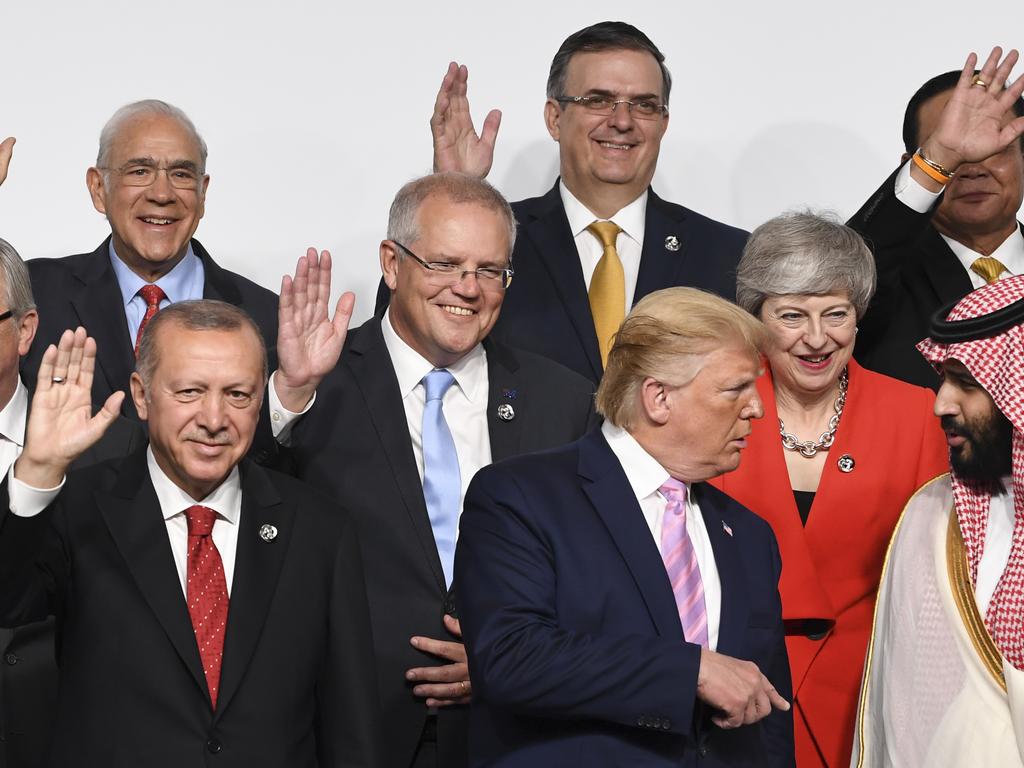
On Mr Trump’s right is Turkish President Recep Tayyip Erdogan, who reportedly switched places with Xi Jinping at the last minute so the US and Chinese President would not have to pose next to one another.
The two countries are engulfed in an escalating trade war that threatens to shave half a per cent of growth off the global economy this year, according to International Monetary Fund (IMF) analysis.
While the pair shook hands and smiled at one point, Mr Trump later took a swipe at Chinese tech giant Huawei, saying it was “essential to our shared safety and prosperity” to ensure the security of 5G networks. The leaders’ bilateral meeting on Saturday will dominate the tone of the entire summit.
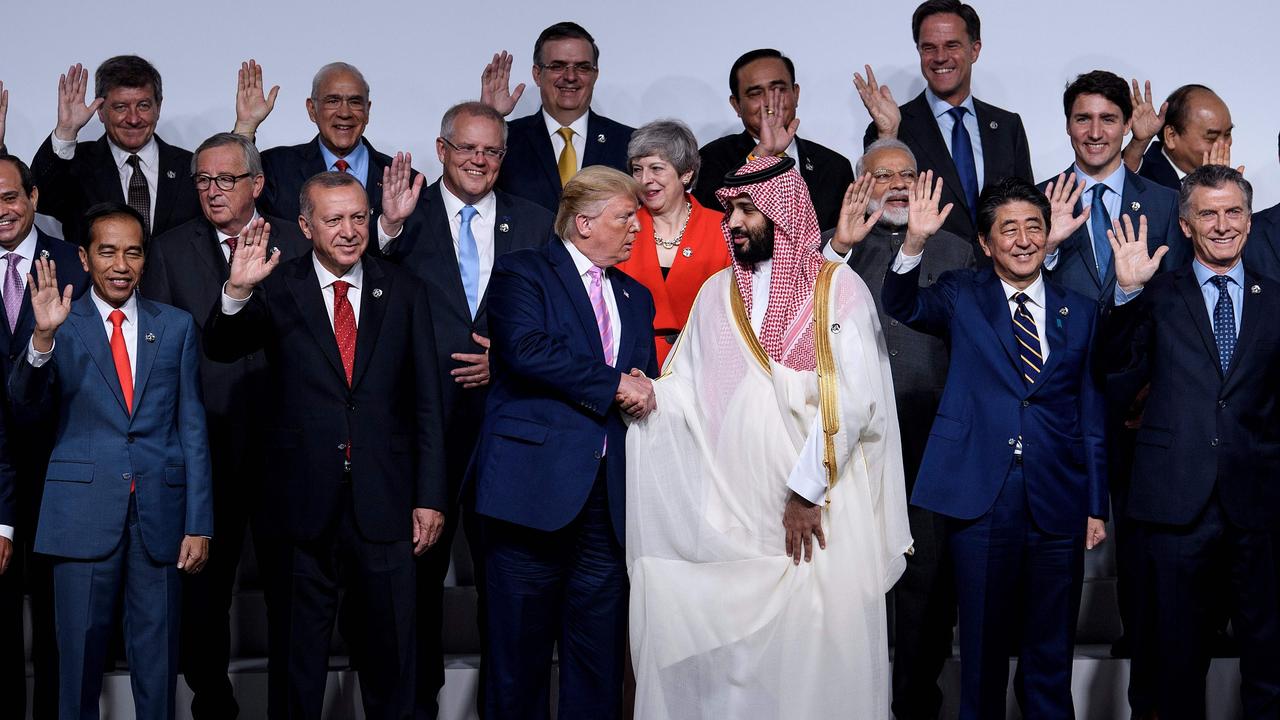
Scott Morrison met with both US and Chinese leaders and said it would be unrealistic to expect a solution to the months-long battle over the two-day summit.
“There’s obviously a determination to resolve it but I’m not naive about the difficulties of that occurring,” the Australian Prime Minister told reporters on Friday. “The fact that they’re engaging is positive but I’m simply aware that there are very real, substantial and difficult issues to be resolved.”
Mr Morrison told both presidents their spat was negatively impacting the global economy, hurting other countries. “The comment isn’t made as a criticism, it’s just made as candid observation,” he said. “And I’m not the only one making it who’s here.”
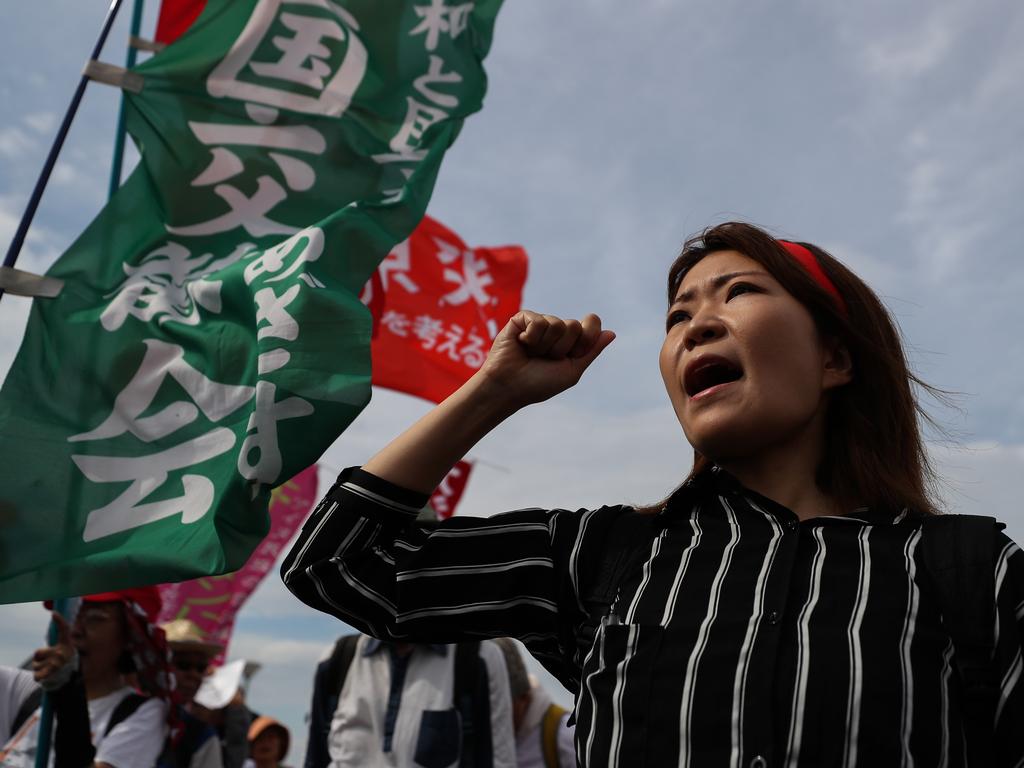
The IMF believes global growth could shrink to 3.1 per cent from 3.6 per cent in 2020 if additional tariffs are implemented as threatened. Japanese Prime Minister Shinzo Abe said he had “grave concerns” about the situation on global trade.
“Free and open economy is the foundation of peace and prosperity, while anxiety and discontent about the abrupt changes due to globalisation at times generate a temptation to protectionism, bringing in sharp confrontation between states,” he said.
Trade is just one of the issues causing ructions at the meeting of leaders from the world’s biggest economies, plus the IMF and European Union. It comes as the delicate consensus surrounding major issues including Iran’s nuclear capability, climate change and multilateral institutions is under threat from populism and protectionism.
Mr Abe defied Chinese warnings not to mention the Hong Kong protest by telling Mr Xi it was important for Hong Kong to prosper under the “one country, two systems” rule first agreed in 1997.
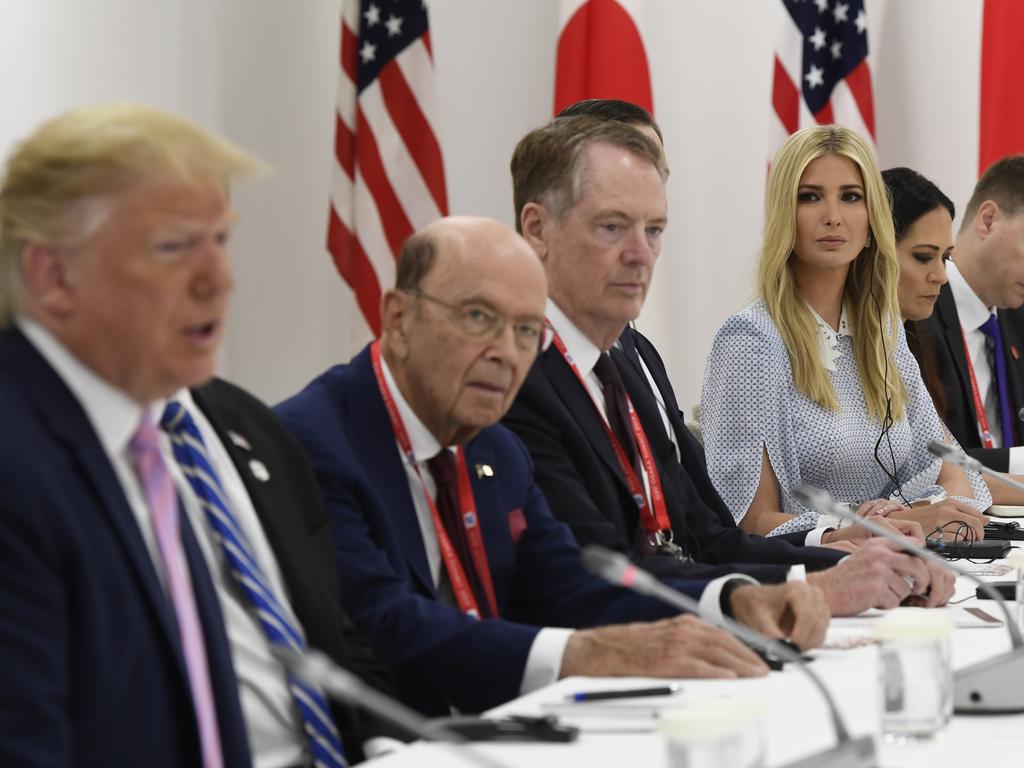
Mr Trump’s sideline meeting with Mr Putin also came under the spotlight as their first meeting since Robert Mueller’s conclusion that Russia interfered in the US election. At their meeting, Mr Trump wagged his finger at Mr Putin and joked for the cameras: “Don’t meddle with the election”.
Mr Putin also invited the US leader to visit Russia for the 75th anniversary of the end of World War II. On the eve of the summit, he claimed liberalism was “obsolete” in a rare interview, earning a sharp rebuke from European Council leader Donald Tusk.
“What I find really obsolete are: authoritarianism, personality cults, the rule of oligarchs. Even if sometimes they may seem effective,” he said.
UK Prime Minister Theresa May also slammed Mr Putin’s “despicable” use of nerve agent on UK soil and said the “irresponsible and destabilising activity” must end.
“The Prime Minister said that the use of a deadly nerve agent on the streets of Salisbury formed part of a wider pattern of unacceptable behaviour and was a truly despicable act that led to the death of a British citizen, Dawn Sturgess,” Downing Street said in a statement. “She was clear that the UK has irrefutable evidence that Russia was behind the attack — based on painstaking investigations and co-operation with our allies.”
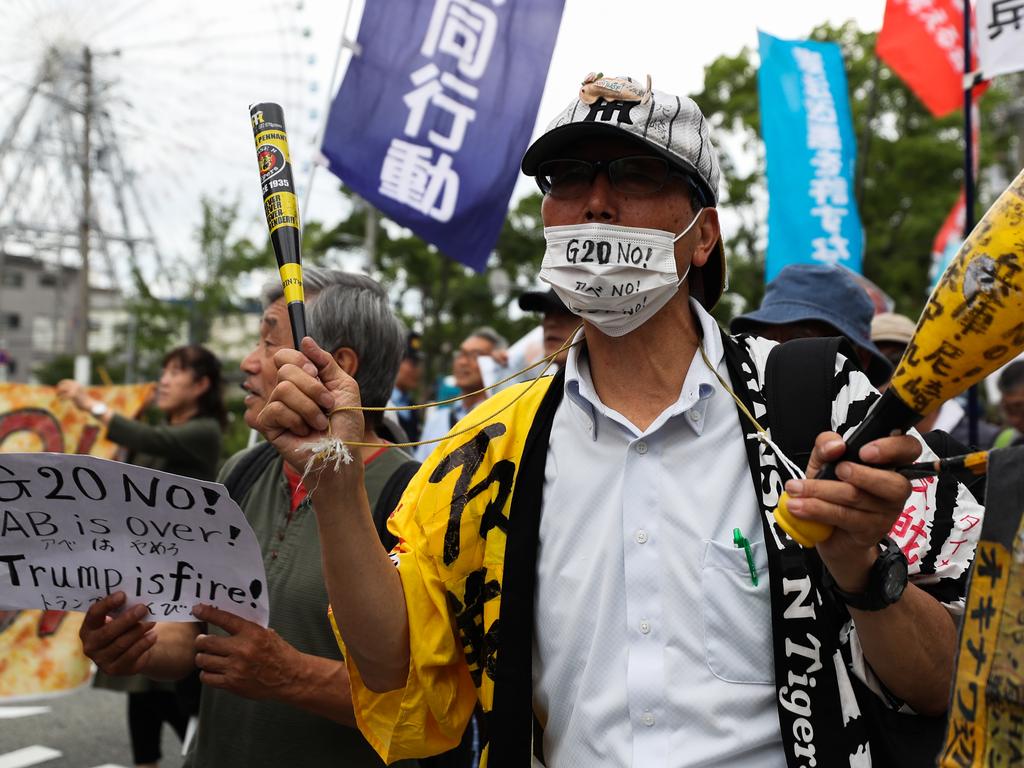
Action on climate change is also unlikely at the summit with Washington pressuring leaders to reject strong language on the issue, French government sources said.
In recent years, the roadblock has been overcome by 19 of the members endorsing language backing the Paris deal and Washington adding its own line referring to its plan to leave the agreement.
“That’s what we managed to get after a difficult fight in Hamburg and Buenos Aires, and what we want to confirm here, at a minimum,” the source told reporters. “The Americans are trying to weaken the message and to rally to their position a number of states.
“That would mean no longer 19+1 but 18+2 or 17+3 … and that for us is unacceptable.”
At a meeting in Osaka on the summit sidelines on Friday, European leaders agreed that “we cannot accept a text that waters down what we got during the last two G20s and weakens the Paris accords,” the source said.
French President Emmanuel Macron has already said that removing a reference to the Paris deal would be a “red line” for Paris, threatening to refuse to sign the final communique.
— with wires



